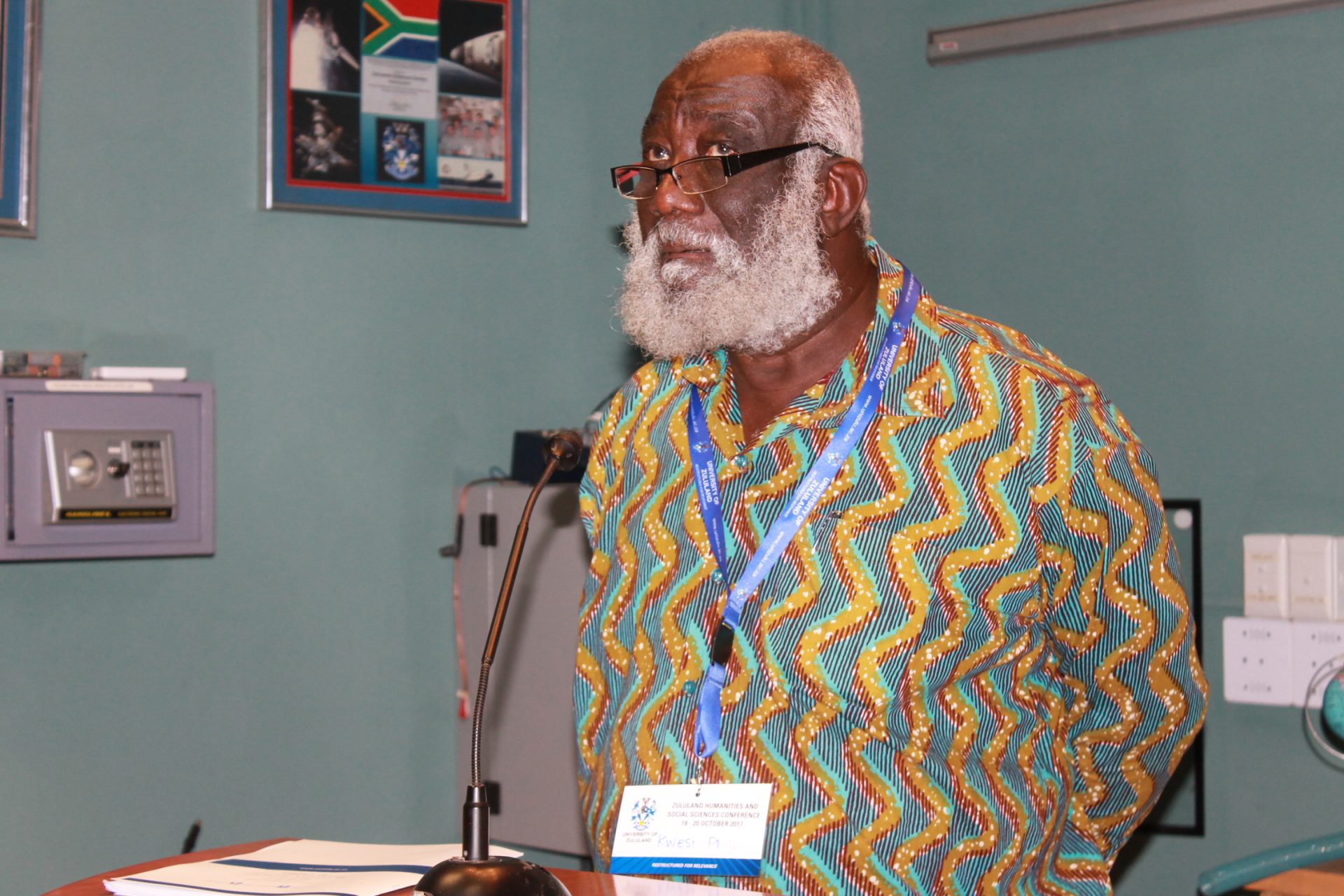Decolonising Knowledge Production

The decolonisation of knowledge production was discussed at the 8th annual Humanities and Social Sciences Conference which recently took place at the University of Zululand’s Science Centre.
Hosted by the UNIZULU Faculty of Arts, the three-day conference was held under the theme: Decolonising Knowledge Production and Dissemination in The Humanities and Social Sciences and saw academics critically discuss and unpack the notion of decolonisation of the curricula. Academic papers were also presented under the aforementioned theme.
Professor Kwesi Kwaa Prah, Founder of the Centre for the Advanced Study of African Society (Casas), a think-tank dedicated to research of critical developments in Africa and the Diaspora, spoke on The Centrality of the Language Question in the Decolonisation of Education in Africa. Prof Prah’s talk looked at the significance of language in the discussion of education decolonisation in Africa. “Language is key to the decolonisation of education and should be a starting point and the preeminent feature which needs to be engaged in any success to the efforts of education decolonisation. Africa is the only continent in the world where we keep using the colonial language when the former colonial countries has moved away. We are in fact improving the colonial language and are proud to do so,” said Prof Prah.
Dr Karen Ferreira Meyers, Coordinator: Modern Languages/Linguistics at the Institute of Distance Education (University of Swaziland) spoke on the 21st Century Teaching and Learning: Taking Care of Context. “Context is one of those notions that deserves a book length discussion. Contextual factors such as affect, student’s attitudes and cultural attitudes have the huge influence on our ability to learn languages. Context should be the first issue that should be taken into account well before any other mythological decisions are made. Indigenous knowledge in teaching and learning has more recently arisen in response to the inappropriate western paradigms in African context. Today it has become more and more clearer that teaching and learning strategies need to be created to align with the intentions, context, the participatory nature of indigenous knowledge, the need to be sensitive to that context and the need to educate in a transformational and participatory manner and by recognising local cultural identities manifesting themselves,” said Dr Meyers.
– Precious Shamase
Pictured: Professor Kwesi Kwaa Prah, Founder of the Centre for the Advanced Study of African Society, during his talk at the 8th annual Humanities and Social Sciences Conference which took place at UNIZULU recently.














Leave a Reply